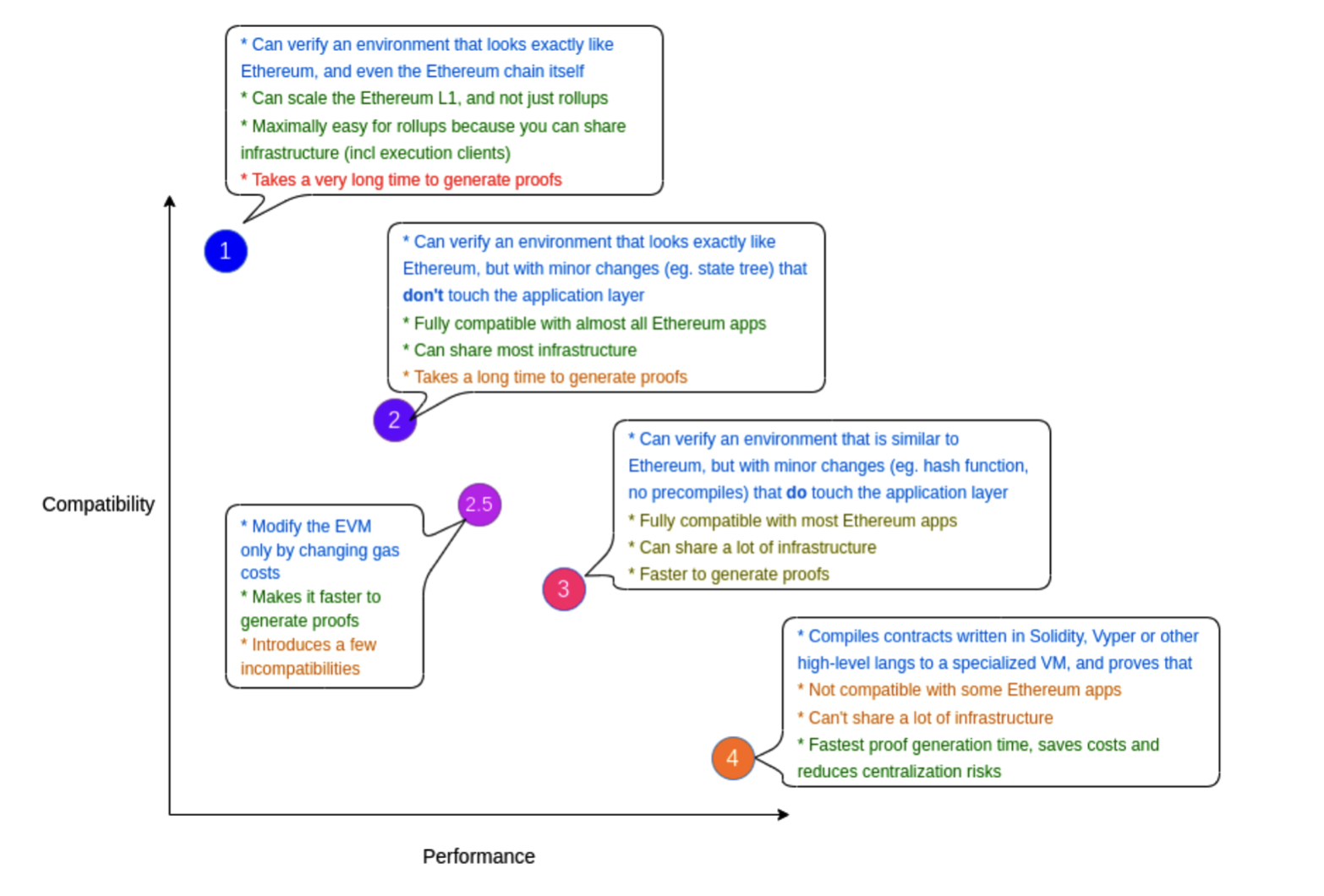Introduction and definitions
The Polygon type 1 prover is a ZK-EVM proving component capable of generating proofs for Ethereum blocks. It has been developed in collaboration with the Toposware team.
Info
The Polygon type 1 prover is not yet ready for full implementation into a CDK stack.
Get started¶
If you want to get up and running quickly, follow the how to deploy the type 1 prover guide.
Warning
Throughout this section, we refer to ZK-EVM chains in a general sense and this should not be confused with Polygon’s zkEVM product which is a specific example of a ZK-EVM.
Type definitions¶
The emergence of various ZK-EVMs ignited the debate of how ‘equivalent’ is a given ZK-EVM to the Ethereum virtual machine (EVM).
Vitalik Buterin has since introduced some calibration to EVM-equivalence in his article, “The different types of ZK-EVMs”. He made a distinction among five types of ZK-EVMs, which boils down to the inevitable trade-off between Ethereum equivalence and the efficacy of the zero-knowledge proving scheme involved. For brevity, we refer to this proving scheme as the zk-prover or simply, prover.
The types, as outlined by Vitalik, are as follows;
- Type 1 ZK-EVMs strive for full Ethereum-equivalence. These types do not change anything in the Ethereum stack except adding a zk-prover. They can therefore verify Ethereum and environments that are exactly like Ethereum.
- Type-2 ZK-EVMs aim at full EVM-equivalence instead of Ethereum-equivalence. These ZK-EVMs make some minor changes to the Ethereum stack with the exception of the Application layer. As a result, they are fully compatible with almost all Ethereum apps, and thus offer the same UX as with Ethereum.
- Type-2.5 ZK-EVMs endeavor for EVM-equivalence but make changes to gas costs. These ZK-EVMs achieve fast generation of proofs but introduces a few incompatibles.
- Type-3 ZK-EVMs seek to be EVM-equivalent but make a few minor changes to the Application layer. These type of ZK-EVMs achieve faster generation of proofs, and are not compatible with most Ethereum apps.
- Type-4 ZK-EVMs are high-level-language equivalent ZK-EVMs. These type of ZK-EVMs take smart contract code written in Solidity, Vyper or other high-level languages and compile it to a specialized virtual machine and prove it. Type-4 ZK-EVMs attain the fastest proof generation time.
The figure below gives a visual summary of the types, contrasting compatibility with performance.

Ultimately, choosing which type of ZK-EVM to develop involves a trade-off between EVM-equivalence and performance.
The challenge this poses for developers who favor exact Ethereum-equivalence is to devise ingenious designs and clever techniques to implement faster zk-provers. Vitalik mentions one mitigation strategy to improve proof generation times: cleverly engineered, and massively parallelized provers.